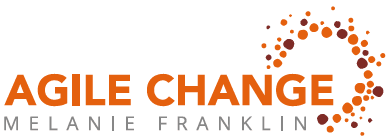I am working on something which has so many inter-connected parts it feels impossible to find an obvious starting point. It is very frustrating as every time I find an answer and complete one piece of work, I find there are knock-on effects to other pieces of work.
It is so easy to get lost in this detail, and when everything feels connected to everything else, it is difficult to get a sense of achievement from having completed something.
You might be wondering how I can reframe this complexity as a positive, but this is what I do to stop myself from feeling overwhelmed.
I reframe the complexity of the situation as a benefit. I accept the fact that there are no easy answers and there is no simple, linear path from the start to the finish of this change initiative. Instead, I “lean in” to the complexity, mind-mapping every aspect I can think of and working out how each part is connected to other parts of the change.
By working with the complexity, I can achieve a much deeper understanding of the impact of my change and the wider context – how it affects other parts of the organisation and the external ecosystem in which the organisation works. This wider context helps me appreciate my change at a strategic level and not just focus on the tactical changes I need to make.
In doing this, I also identify stakeholders who are interested in the connections but who might not have been found on a simple stakeholder analysis because they are not directly connected with my change.
This complexity gives me the opportunity to engage with this wider group of stakeholders, making new connections and building new relationships. I can make these connections because I have something useful to say. I am letting them know that things that they are doing are connected to what I am trying to achieve, and what I am doing impacts what they are trying to achieve. I am acting as an early warning radar for potential problems ahead and giving all of us the opportunity to find similarities, duplications and complementary activities that enable us to be more efficient – why have two teams do similar work when we can partner up and share the load?
Yes, complexity is a burden because it increases the risk that things will get missed and that work will take longer and require more skills than originally planned. But there are opportunities to develop our skills, learn new things and build new relationships.
If you want guidance on how to break complex work into smaller, more manageable steps, join my Agile Change Agent course, where we work through, breakdown and prioritisation techniques that make a difficult workload manageable.
